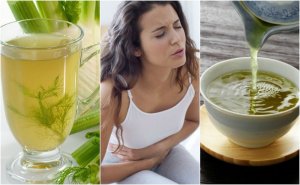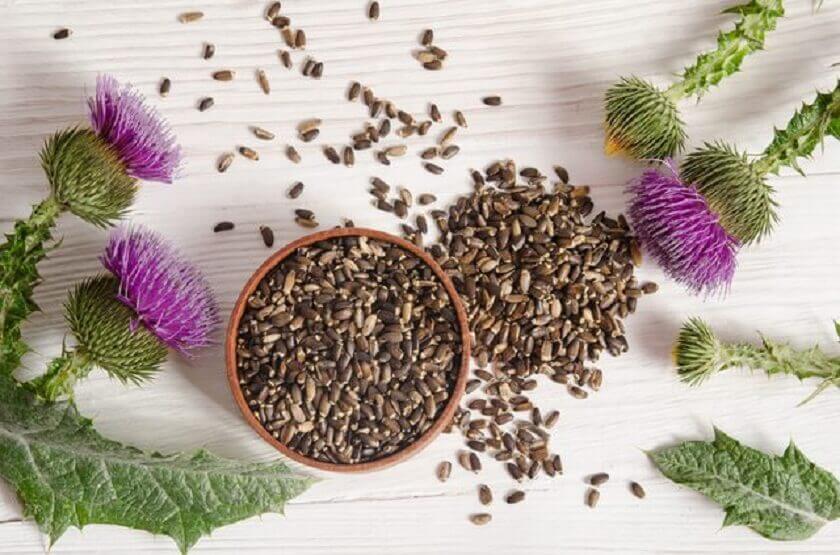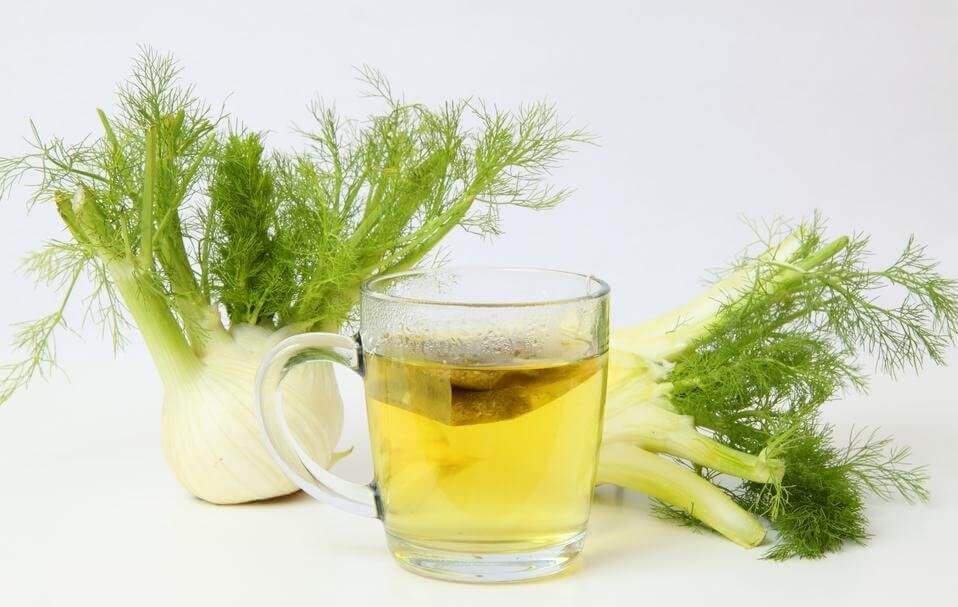5 Plant-Based Teas for Fighting Indigestion


Reviewed and approved by the pedagogue in physical education and nutritionist Elisa Morales Lupayante
It’s not an actual disease but rather often the result of digestion difficulties that we experience after eating large portions or irritating foods.
Indigestion is an abdominal pain that can be mild or intense. It often comes with a feeling of fullness, gas and bloating.
People most often experience it occasionally, but there are many who have it frequently as it can also signal other digestion diseases.
Mild cases of indigestion disappear quickly and can find solutions in lifestyle changes. In addition, people who experience indigestion can also prepare some remedies that help reduce the symptoms.
Further below, we’d like to share 5 plant-based teas with you. Thanks to their properties, they make wonderful options to combat this problem.
Keep on reading!
1. Milk thistle tea

Milk thistle has digestive and anti-inflammatory properties that can help relieve the complications that result from poor digestion.
Its compounds stimulate the liver and thus helps our body eliminate waste.
Ingredients
- 1 teaspoon of milk thistle (5 g)
- 1 cup of water (250 ml)
Preparation
- Add one teaspoon of milk thistle into a cup of boiling water.
- Cover the cup and leave it steep for 10 minutes, then strain.
Drinking instruction
- Drink the tea after eating big portions of irritating foods.
- Repeat 2 times a day if the symptoms are persistent.
Also see: Use Your Hands to Measure Food Portions
2. Boldo tea
Boldo leaves contain an essential oil known as cineol. This essential oil acts as a tonic for the liver and digestive system.
Drinking the leaves as a tea helps calm stomach acid and reduce pain and swelling.
Ingredients
- 1 teaspoon of dried boldo leaves (5 g)
- 1 cup of water (250 ml)
Preparation
- Add the dried boldo leaves to a cup of boiling water and cover.
- Leave it to steep for 10 minutes and filter using a strainer.
Drinking instruction
- Drink the tea at the first signs of indigestion.
- As a prevention method, drink it 30 minutes before main meals.
3. Fennel tea

Fennel tea is one of the traditional remedies for heavier digestions. It has carminative properties that fight excess gas and it reduces heartburn and abdominal pain as well.
Ingredients
- 1 tablespoon of fennel (15 g)
- 1 cup of water (250 ml)
Preparation
- Add the fennel to a cup of boiling water and leave it on low-heat for 3 minutes.
- Turn off the heat and cover the tea. Wait until it cools down.
Drinking instruction
- Drink the fennel tea when you feel digestive discomfort.
- If you want to prevent indigestion, take it after eating big portions.
4. Cumin tea
Cumin is one of the best natural carminatives and, as a result, it’s perfect for treating indigestion.
Its properties help eliminate gas that accumulates in the intestine and reduce bloating as well as heaviness.
Ingredients
- 1 teaspoon of cumin (5 g)
- 1 cup of water (250 ml)
Preparation
- Put the cumin into a cup of boiling water and cover.
- After 10 minutes, strain and serve.
Drinking instruction
- Drink the tea when your stomach feels uncomfortable.
- Have a cup of tea when you have gas or feel too full.
- Drink 2 or 3 times a day if necessary.
We recommend that you read: Activate Your Metabolism with This Spicy Tea
5. Anise tea

Anise contains anethole, which is a substance that helps digest food. Its carminative effect combats excess gas and reduces abdominal bloating.
It’s one of the most effective remedies against indigestion because, among other effects, it soothes abdominal pain.
Ingredients
- 1 teaspoon of anise (15 g)
- 1 cup of water (250 ml)
Preparation
- Add a tablespoon of anise to a cup of boiling water.
- Cover the cup and wait, leaving it to steep for 10 to 15 minutes.
- When it’s ready to drink, strain.
Drinking instruction
- Drink a cup of anise tea when you feel too full or experience abdominal pain.
- Take is as a preventative measure 30 minutes before eating irritating foods.
- If the symptoms persist, repeat the remedy.
- You can drink up to 3 cups of anise tea if you think it’s necessary.
Note: Avoid this remedy if you have any kind of liver disease or gastritis.
As you’ve seen there are various teas available that can help soothe the symptoms of indigestion.
Fix yourself a cup of what looks best and try out its properties for yourself. However, if the symptoms return without any apparent reason, make an appointment with your doctor.
All cited sources were thoroughly reviewed by our team to ensure their quality, reliability, currency, and validity. The bibliography of this article was considered reliable and of academic or scientific accuracy.
- Cilleruelo, M. L., & Rivero, M. J. (2013). Gastritis . Ulcus gástrico y duodenal. Asociacion Española de Pediatria.
- Shojaii, A., & Abdollahi Fard, M. (2012). Review of Pharmacological Properties and Chemical Constituents of Pimpinella anisum. ISRN Pharmaceutics. https://doi.org/10.5402/2012/510795
This text is provided for informational purposes only and does not replace consultation with a professional. If in doubt, consult your specialist.








